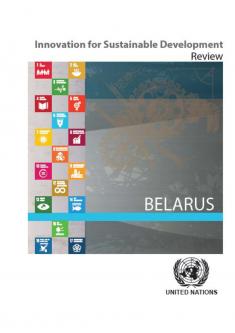Published:

Innovation is a pillar of the United Nations 2030 Agenda for Sustainable Development and of approaches to economic development across the world. This is particularly prominent in Belarus, with its legacy of world-class scientific research and industrial production, where the Government has reformed its national innovation system in line with UNECE’s recommendations in its first UNECE Innovation Performance Review, launched in 2011.
Central reforms include passing legislation to encourage commercialization of intellectual property, centralizing and improving transparency of innovation funds, and including innovation in the overall national strategy for sustainable development. However, important challenges remain. Priorities include increasing risk assessment and tolerance in funding innovative projects, improving project screening and evaluation, and strengthening the capacity for technology absorption and innovation in the private sector. Overall, setting up more dynamic inter-ministerial coordination, as well as fostering multi-stakeholder consultations to design, operate, and evaluate innovation policy, would significantly contribute to the sustainable development goals.
The Innovation for Sustainable Development Review shows both continuity and change with respect to previous publications in this series (i.e. Innovation Performance Review). On the one hand, the new format presents a general review of the national legal and institutional framework for innovation, in line with the structure of previous studies of Kazakhstan, Ukraine, Armenia and Tajikistan, as well as Belarus’ first review. On the other hand, the new format includes specific chapters that highlight main findings with regard to the sustainable development goals. In the case of Belarus, these cover an assessment of the country’s national development strategies in light of ongoing international initiatives and a review of recent eco-innovation projects in Government programmes and development strategies.

